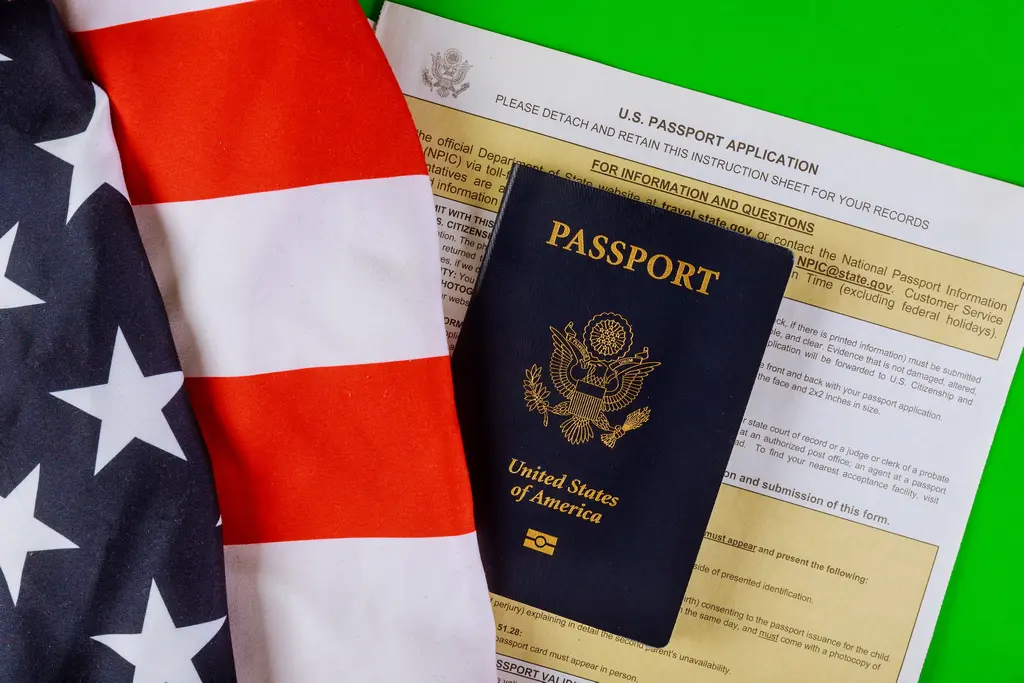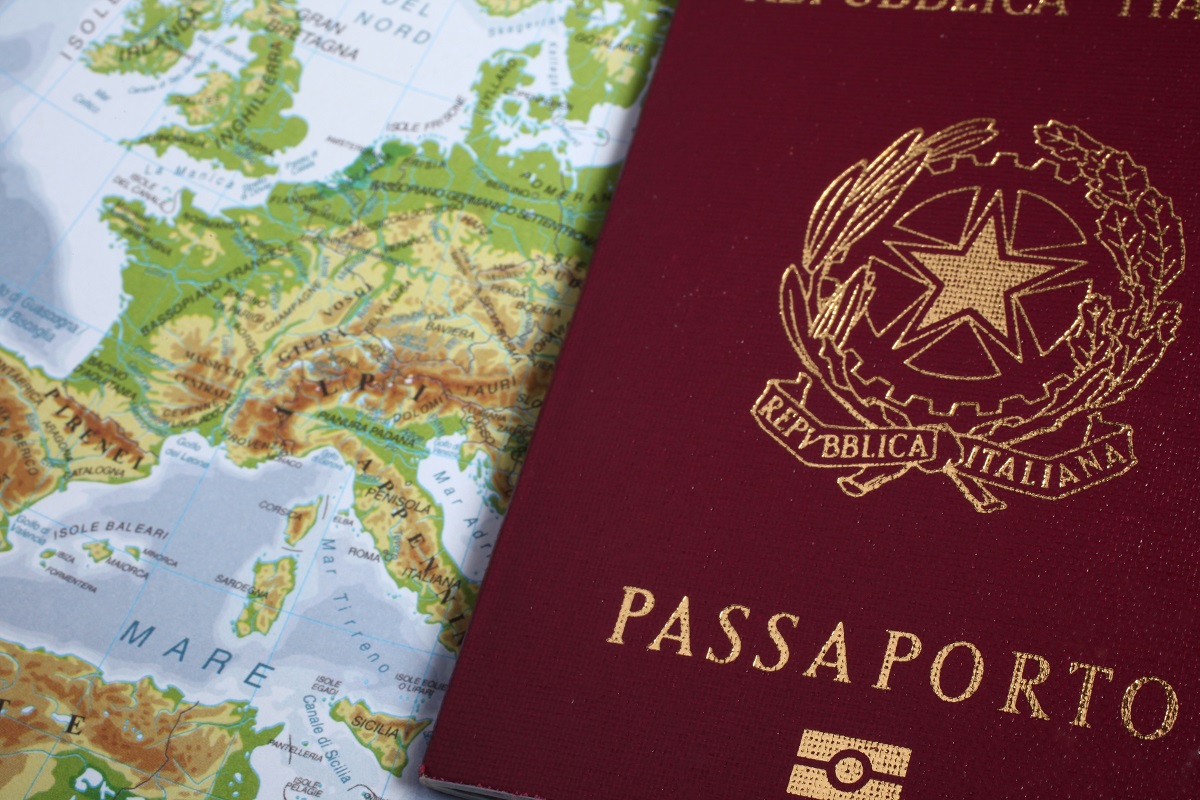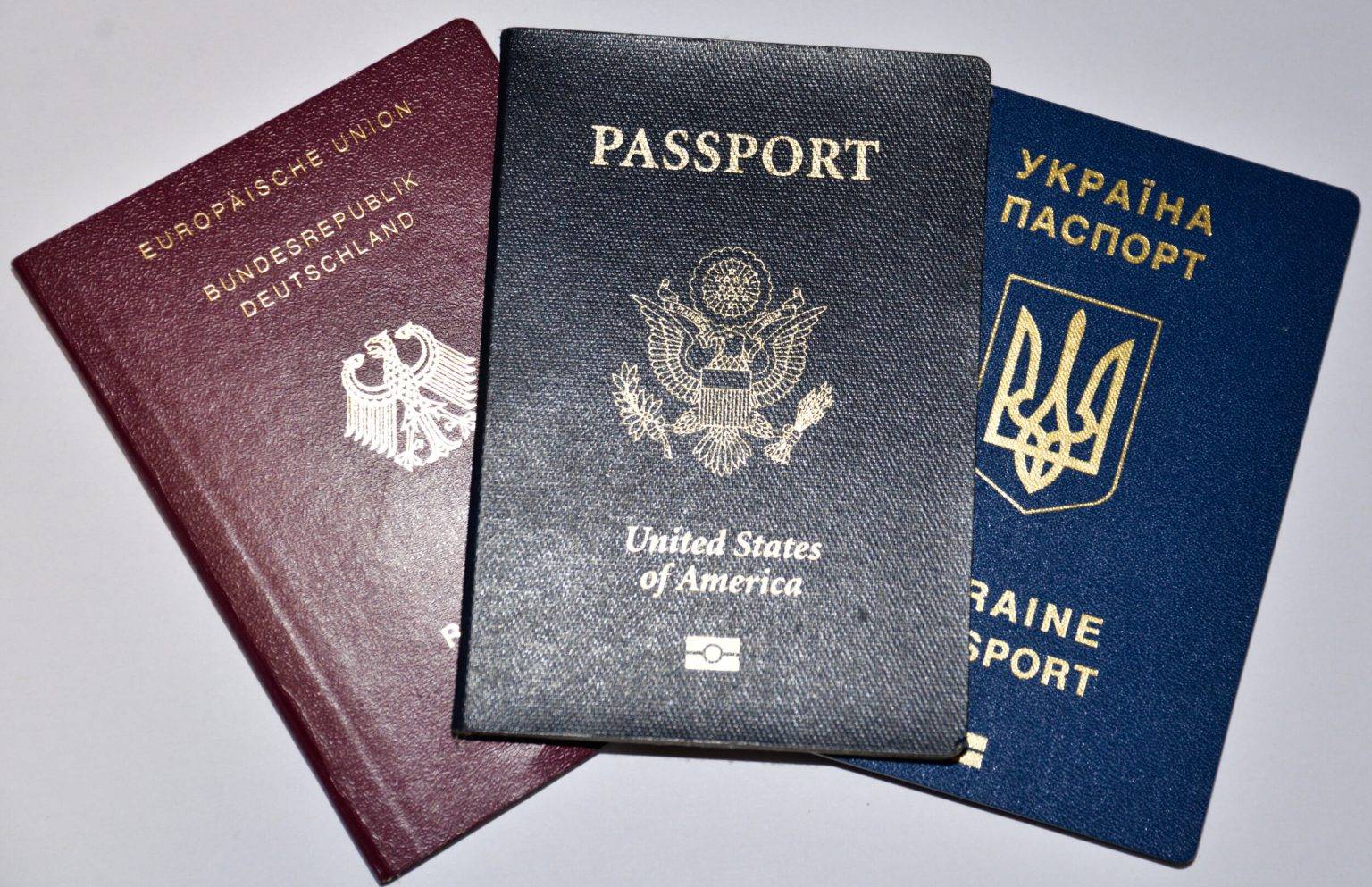Did you know that over 40 million Americans are dual citizens, holding joint passports from two states? But dual citizenship is not only a legal obligation, it is also a gateway to endless opportunities. Imagine working in two economies, touring different countries, having a second home; that’s a dream of many.
But dual citizenship can be a bit daunting, with so many laws, processes, and decisions to make. And that is why you will find this guide so useful.
Whether you are in pursuit of a dual citizenship through the ancestry, marriage abroad or want all the cards on the table, we will give you lowdown in layman terms. When you’re done reading, you’ll know what it takes to become a dual citizen as an America and whether it’s for you. Let’s get into it!
Table of contents
- What Is Dual Citizenship and Why Is It Important?
- Can Americans Legally Hold Dual Citizenship?
- What Are the Benefits of Having Dual Citizenship?
- What Countries Allow Dual Citizenship With The United States?
- What Is the Process to Get Dual Citizenship Through Ancestry?
- How Can Marriage Help You Get Dual Citizenship?
- What’s the Process for Dual Citizenship by Naturalization?
- What Documents Do You Need to Apply for Dual Citizenship?
- How Long Does It Take to Get Dual Citizenship?
- What Are the Costs Involved in Obtaining Dual Citizenship?
- Can You Lose U.S. Citizenship by Gaining Dual Citizenship?
- Can You Have Two Passports From Countries That Don’t Recognize Dual Citizenship?
- Can You Pass Dual Citizenship to Your Children?
- Conclusion
- Frequently Asked Questions
- References
- Recommendations
What Is Dual Citizenship and Why Is It Important?

Dual citizenship means being a citizen of two nations at the same time. Holding both keys unlocks two very different worlds. You can be a citizen of two countries and live both countries! It can include the ability to vote, the right to work, own a property, and even receive proper healthcare!
Why does it matter, you ask? It means you have more options and more freedom! For example, if you’re passionate about traveling, having two citizenships will save you from standing in line for hours on end or not getting in a state due to visa issues. It also means you have a backup plan – if one country’s economy collapses or the political situation becomes unbearable, you can move there and start fresh!
And on a more sentimental note, being a citizen of two countries can bring you closer to your roots! Some people even refer to dual citizenship as part of their identity and cultural heritage!
Read also: 5 Australian Companies That Sponsor Work Visas
Can Americans Legally Hold Dual Citizenship?

They definitely can! This means you can continue carrying your U.S. passport with pride and abide by foreign laws and regulations.
However, it’s worth noting that not all countries will allow you to hold other citizenships. Some countries may even require their new citizens to renounce their citizenship. Research the country thoroughly before making any decisions!
Keep in mind that having dual citizenship also carries responsibilities in both countries – it can be paying taxes, military service, or any other!
What Are the Benefits of Having Dual Citizenship?
Dual citizenship brings many amazing benefits. It allows you to live, work, and study in two countries without visa applications or endless immigration processes. You receive benefits and social security in both countries, as well as easy access to jobs and medical services. Further, people with multiple passports traverse the world far easier than those with only one.
Many countries permit dual citizens to live and work in them indefinitely, something a solo passport may never get you. If you have strong connections to your second country, you can get in touch with your origins, and both places become your home.
Moreover, financial incentives abroad reduce your taxes and facilitate the establishment of businesses elsewhere. This gives you the freedom to live and work where you wish while holding you back. In short, it is like combining the better of two options.
Read also: Hispanic Scholarship Fund 2025: Your Handbook to Opportunities
What Countries Allow Dual Citizenship With The United States?

Multiple countries permit dual citizenship with the US. The United States has specific rules and duties depending on the country. The most popular destinations for dual citizenship include Canada, Ireland, Italy, and Germany, and Mexico.
But there are a handful of countries where dual citizenship can be complicated. Countries such as Japan, China and India generally don’t offer dual citizenship, which means you may need to renounce one nationality in favor of the other.
It’s worth looking up the specific laws in any country you are considering. Some countries permit dual citizenship for specific reasons — marriage, birthright or long-term residency — while others are more restrictive. A little bit of research goes a long way here.
Read also: 5 Jobs In Japan With Visa Sponsorship
What Is the Process to Get Dual Citizenship Through Ancestry?
The great news is that if you’re considering seeking dual citizenship based on ancestry, this is one of the easiest and most straightforward routes to take. Here’s what you can do to get started:
Step 1-Research Your Family Tree:
Begin with your family history. Find any records that connect you to a foreign ancestor, such as birth certificates, marriage records and passports. There are no consequences for entering into contracts; the more paperwork you have, the easier this process will be.
Step 2-Check The Country Requirements:
Countries have different rules about ancestry-based citizenship. For example, Italy permits descendants of Italians to seek citizenship based on proof that their family never renounced it. Other nations may have generational limits (e.g., only descendants from the past three generations qualify). If the requirements suit you, you can go on with the next step.
Step 3-Submit an Application:
After collecting your documents and verifying your eligibility, you will need to submit an application to the relevant consulate or embassy. Be prepared to share all details of your family tree, including evidence of your ancestor’s citizenship.
Step 4: Attend an Interview (If Required)
Depending on the application process, you may be required to attend an interview at some point. This may especially be the case if you’re claiming citizenship through a more distant ancestor.
Step 5-Wait for Approval:
Depending on the complexity of your case, the approval process could take months or years to complete, depending on the country in which you’re applying from. Allow time and track your application status.
The dual citizenship through ancestry route is one of the most rewarding options. So if you have ancestors from countries that allow this, that could be your golden ticket!
Read also: 10 Companies That Offer H1B Sponsorship Visas in 2025
How Can Marriage Help You Get Dual Citizenship?

Getting married to a foreigner may be a very real shortcut to dual nationality. Some countries have a faster route to citizenship for spouses of the country’s citizens. Here’s how it works:
Eligibility Through Marriage:
In some countries, including Spain, France and Canada, one may obtain citizenship after a number of years of marriage or years of residence in the country (if married to a citizen). For instance, in France, you can apply for citizenship after living together for four years, while in Spain it’s as little as one year if you’ve spent that time living together there.
Naturalization Process:
While the rules differ from place to place, the process typically includes an examination of whether your marriage is real (not entering into a marriage for the sake of citizenship). You might need to show proof of cohabitation, shared money, etc. Some countries will also ask you to prove a basic level of competency in the language and culture.
Faster Processing Times:
The great thing about applying through marriage is that in most countries the processing time is faster than with any other way to get naturalization. As long as both countries allow for dual citizenship, you’ll get to keep both passports.
What’s the Process for Dual Citizenship by Naturalization?
If you’ve lived in a country for a few years, naturalization is also a good mode to dual citizenship. Traditionally, this has meant demonstrating a commitment to the country through years in the country, language skills and cultural knowledge. Here’s the normal course of the naturalization process:
Residency Requirements:
Most countries require you to be a resident within the country for a set number of years before you can actually apply for citizenship. In Canada, for example, you generally must have resided there as a permanent resident for three years before you can apply. Other nations, such as Argentina, may require just two years residing there.
Application and Interview:
After meeting the residency and other requirements, you will have to apply for citizenship. Certain countries will mandate you sit for an in-person interview, where you are required to demonstrate your knowledge and understanding of the country’s customs and laws.
Oath of Allegiance:
If your application is successful, you’ll need to take an oath of allegiance to the country, promising loyalty and agreeing to obey its laws. This process formally makes you a citizen.
Retaining U.S. Citizenship:
The U.S. gives you the opportunity to maintain your American citizenship: one of the advantages of naturalization in a lot of countries. You will not need to give up your U.S. passport unless the foreign country requires it.
The naturalization process takes many years, but if you’re willing to commit to living in another country, it’s a sure bet. And it often gives you the benefits of full citizenship, including the right to vote, work and access to social services.
Read also: Top 10 Economic and Business Opportunities in Seychelles You Can’t Miss in 2025!
What Documents Do You Need to Apply for Dual Citizenship?

Dual citizenship requires multiple essential documents and may vary according to what country you are applying to. But there are some key documents you’ll usually need, no matter what:
Proof of Identity:
You will need-
- A passport
- Birth certificate
- Other government-issued I.D.
This is important when applying through ancestry or marriage, as it confirms your current citizenship.
Proof of Ancestry (for Citizenship by Descent):
If you’re applying through ancestry, you’ll need documentation to trace your lineage, like birth and marriage certificates from your ancestors. If, for example, you are claiming Italian citizenship, you will need to show that your ancestor was an Italian citizen and that they never renounced their citizenship.
Marriage Certificate (for Citizenship by Marriage):
In case you’re applying through the option of marriage, you’ll have to submit your certificate of marriage to prove that you are legally married to a citizen of the destination country you are applying to. Some countries may also require evidence of a bona fide, long-term marriage, like joint tax returns or utility bills.
Proof of Residency (Naturalization):
If you’re filing through naturalization, for example, you’ll need documents proving you’ve been in the country the requisite number of years. They mostly ask for-
- Rental Agreements
- Tax Records
- Employment Records
All these can verify your residency status
Certificate of Language Proficiency (if applicable):
Applicants for citizenship through naturalization in certain countries take a test to prove they are capable of speaking the local tongue. You might be required to sit a language test and submit the certificate with your application.
Criminal Background Check:
Most countries will also ask you for a police report or a criminal background check to make sure you have no pending serious criminal convictions that could bar you from citizenship.
Application Form and Fees:
Finally, you will need to complete the nationality application form for the country you are applying to. Follow instructions carefully — it will slow the process if you get something wrong. Also be ready to pay any application fees and those differ from country to country.
Read also: Mauritius Africa Scholarship Scheme 2025
How Long Does It Take to Get Dual Citizenship?

Dual citizenship can take anywhere from a few months to many years. Here’s a breakdown of how long each path can take:
Dual Citizenship by Descent:
If through ancestry, the process is generally quicker than other pathways. It will take you anywhere from 6 months to 2 years, depending on the complexity of your documents and the processing times of the country in question. If you can get your documents all ready, and the country has an application process that is efficient, this may be the fastest path.
Dual Citizenship by Marriage:
Marriage usually grants citizenship in about 2 to 5 years, again depending on country’s residency laws. With some, like France and Spain, you can apply after 1 to 3 years of marriage (or residence, in some cases), and with others you must live together for a longer time before you can apply.
Naturalization Based Dual Citizenship:
Naturalization is the longest path, generally requiring between 5 to 10 years of living in the country. For instance, if you want to be a citizen of Canada, your permanent resident status must be at least 3 years before you are eligible to apply for citizenship, or in Germany, the methods of getting naturalized may take up to 8 years. How long you’ve lived in the country and how well you’re integrated into culture and community will determine this.
Additional Delays:
Be sure to do the math, taking into consideration any potential delays in the application process, like waiting for a phone call, background check, or additional paperwork. Processing can take longer than normal during peak times or in certain countries so patience is important.
Overall, if you are applying through ancestry or marriage then you can expect a speedier process than if you are applying through naturalization. Whatever the route, however, be sure to stay organized and keep your documents straight to avoid needless delays.
What Are the Costs Involved in Obtaining Dual Citizenship?

The cost for dual citizenship can vary significantly based on a number of different factors, including the country you’re applying to, the pathway you choose and how complicated the application process is. Here’s a breakdown of the types of costs you might encounter along the way:
Application Fees:
Most countries will have the application fee once you complete your dual citizenship application. Fees vary by country and by how you apply — from $100 to more than $1,000. For instance, the U.S. Department of State collects approximately $235 for some naturalization applications, and Italy may levy a charge of $300 to $500 to process ancestry-based citizenship claims.
Legal Fees:
Most of the time, you’ll be able to go through the application process on your own, which is why, with the paperwork and possible complications, many will choose to hire an immigration lawyer. Legal fees vary by lawyer and country but typically range from $500 to $5,000, particularly if you have a complex case (i.e., proof of ancestry or an unusual legal issue).
Document Translation and Authentication:
If you’re submitting documents in a different language than that of the country, you might need to get them translated. Translation prices anywhere between $20-$50 per page. Also, some documents need notarization or apostille certification to verify their authenticity, which can increase the cost to $10 — $50 extra per document.
Test cases for Language and Integration:
You may face other costs if the country requires you to distinguish in either a language or a cultural test in the naturalization process. The cost of language classes ranges from $100 to $1,000 depending on the country and level of instruction you require. Some countries may also charge a fee for the tests, which typically cost between $50 to $200.
Other Miscellaneous Costs:
And of course, if you have interview appointments at a consulate or embassy, you need to get there, which means travel costs as well, not to talk about the costs of obtaining everything from what you are going to submit (getting original birth or marriage documents, police reports, etc). These fees can total a few hundred dollars, depending on how many documents you need.
Can You Lose U.S. Citizenship by Gaining Dual Citizenship?
In general, the U.S. does not strip U.S. citizens of their citizenship upon acquiring dual citizenship, but this may happen in certain situations. Although it’s fairly uncommon, it’s crucial to know the situations that could lead you to lose your U.S. citizenship:
Voluntary Renunciation of U.S. Citizenship:
The U.S. government could take your citizenship away if you renounce your U.S. citizenship voluntarily to become a citizen of another country. This typically occurs when you file a formal declaration stating that you do not wish to be a citizen of the United States anymore. But that’s a formal, intentional process, and it does not happen by virtue of becoming dual citizens.
Fighting for a Foreign Military:
In extreme examples, should you enlist in a military of a foreign nation (particularly one that’s a foe of the U.S.), you may be thought to have renounced your loyalty to the U.S. This is very rare, though, and is also about acts that could be seen as disloyalty, not just getting dual citizenship.
Naturalizing in Another Country with the Intent to Renounce U.S. Citizenship:
If, when you apply for citizenship in another country, you state or act in such a way that you intend to relinquish your U.S. citizenship as part of that process, you could lose your citizenship. This would need to be an intentional act, and you’d have to actively do something to get cut off from the U.S.
Read also: Do You Know The 7 Hidden Secrets Behind Visa Denied?
Can You Have Two Passports From Countries That Don’t Recognize Dual Citizenship?
While many countries permit dual citizenship, some don’t and that can cause issues. If you are a citizen of a country that does not recognize dual nationality then it is extremely important to know what their position is on dual citizenship, and how that will impact your own plans for citizenship.
Countries, like China, India and Japan, don’t permit dual citizenship under their own national laws. Citizens of these countries who acquire second nationality may be considered by the home country to have voluntarily relinquished their nationality. If you took steps to obtain a second nationality without informing the government, that might provide grounds for revoking your original citizenship.:
If you’ve become a citizen of a country that does not recognize dual citizenship, your new country might grant you dual nationality, but your home country may still only consider you a citizen of the former country. That might mean that, formally, when you possess citizenship of both of the states you owe some duties to (e.g. have to serve in the military or are denied a certain level of consular protection) or enjoy certain benefits (e.g. are entitled to some immunities, or forms of consular protection) in one and not the other.
It can make it difficult for travel, living or doing business in countries that do not recognize dual citizenship. Some countries can also require that you enter and exit a country using only one passport, while others still might not acknowledge your citizenship status. So if, for instance, you are a dual citizen of the United States and one of the few countries that doesn’t allow dual nationality, only that country will honor your American passport, which can pose a problem when you want to use the passport of the country of your second nationality.
Can You Pass Dual Citizenship to Your Children?

Depending on the citizenship laws of these countries, dual citizenship can also extend to your children. Many of them apply for dual citizenship to make sure their respective children can benefit from both worlds. Here’s how it works:
If by Descent:
Many countries permit individuals to transmit citizenship to their children through descent, regardless of the country where the child is born. So if you were a U.S. citizen before becoming a dual citizen with Italy, your children might be able to qualify for Italian citizenship from Italy (italian citizenship by descent citizenship հայտար/cittadinanza). The rules differ by country and each has its own qualifying requirement so make sure you do your research with both countries respective requirements.
Birthright Citizenship:
A handful of countries grant birthright citizenship, which means that any child born in a country gets citizenship there, regardless of the nationality of the parents. The U.S. is one of several countries around the world that offer birthright citizenship, meaning that should you be the parent of a citizen of the U.S., your child would automatically be a U.S. citizen, even if born outside of the country. If your child is born in that country, they may be eligible for citizenship by birth, depending on the country you are gaining dual citizenship with.
If by birth-
Children born to U.S. citizens abroad automatically have dual citizenship. If both countries allow dual citizenship, your child would be able to have citizenship in both countries and reap all the benefits of being a citizen of two countries. Such information can be a tremendous asset for your child, enhancing their ability to live, work, and travel around the world.
Application Process for Children
There will be a formal process if you wish to pass dual citizenship onto your children. So you’ll have to bring evidence of your own citizenship (such as a passport and, possibly, birth certificate) and go through the second country’s application process. The process might be fairly straightforward or require two extra paperwork, depending on the country, especially if your child was born abroad.
Conclusion
Becoming a dual citizen as an American offer all sorts of exciting opportunities, from travel and work, to being able to live in 2 different countries. But that has its own rules, costs and legal obligations. Before pursuing dual citizenship, it’s important to thoroughly take into account the process, the laws of both countries involved and any long-term repercussions.
Read also: Best Harvard Free Online Courses
Frequently Asked Questions
Canada, Italy, Ireland, the UK, and many other countries permit dual citizenship, though they all have different requirements.
Yes, the U.S. taxes its citizens around the world, so you may have tax obligations in both countries.
No, generally speaking, you don’t have to surrender your U.S. passport when obtaining dual citizenship unless you give it up voluntarily.
No, being a dual citizen will not affect your U.S. Social Security benefits, but you must have the necessary work history.
References
- U.S Department of State- Dual Citizenship as an American
- U.S.A.gov– Dual Citizenship as an American
- Investopedia- How to get Dual Citizenship as an American Pros and Cons


